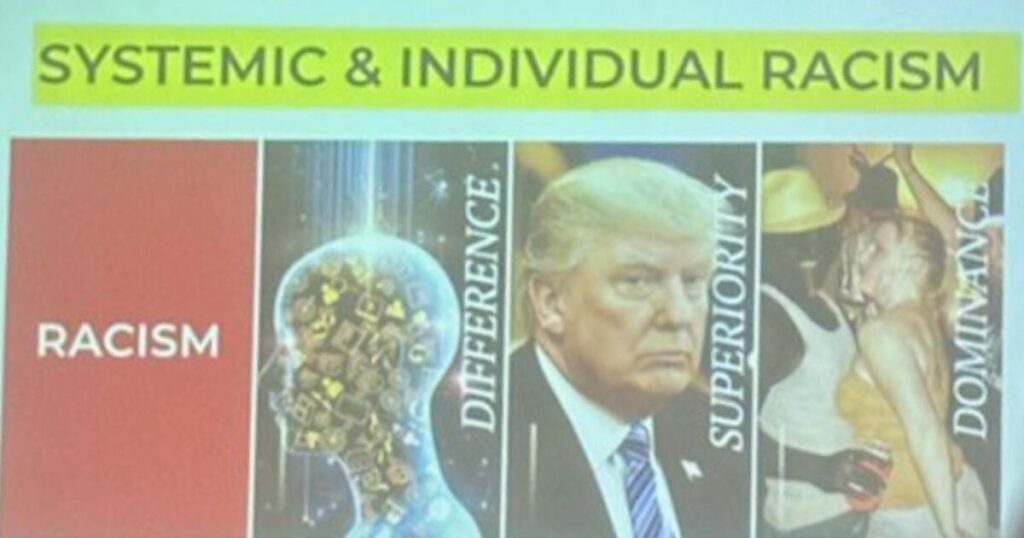In a recent incident at the University of Arizona, a mandatory anti-racism training seminar sparked controversy as it reportedly featured President Donald Trump as an illustration of “superiority.” This training occurs on the heels of the upcoming Presidential election on November 5 and has raised concerns about the role state-funded universities may play in influencing electoral outcomes. Critics, including Turning Point USA founder Charlie Kirk, have expressed outrage over the university’s use of taxpayer money for what they perceive as politically charged programs, questioning how such activities align with the institution’s role as a public educational entity.
Kirk’s criticisms highlight a broader unease regarding the political activities of state-funded universities and their compliance with Arizona laws concerning election interference. Specifically, the Arizona statute prohibits public resources from being utilized to sway election results. The accusations against the University of Arizona suggest a troubling precedent, as some allege that the institution is engaged in actions that contravene this law, particularly in relation to the alleged collusion with the Harris-Walz campaign. This aspect of the situation points to a potential misuse of state resources, raising significant questions about the integrity of educational institutions in the political sphere.
The allegations of improper student data usage by Arizona universities have surfaced as the crux of the issue, with accusations suggesting that the universities provided sensitive information exclusively to the Harris campaign. Arizona State Representative Alex Kolodin has stated that if this data was indeed shared inappropriately, it could constitute a clear violation of Arizona law, which is designed to protect the electoral process from manipulation by public entities. Such claims elevate the stakes for the University of Arizona and its counterpart institutions, implicating them in serious legal and ethical concerns that could have wider ramifications for public institutions in the state.
In response to these allegations, multiple Arizona lawmakers have initiated an investigation into what they label illegal interference in elections by state-funded colleges. State Senators Hoffman and Wendy Rogers are leading this inquiry, seeking to determine the extent of universities’ involvement with political campaigns and whether they have indeed breached any legal protocols that govern the conduct of public universities. The implications of these investigations could resonate deeply within the Arizona political landscape, potentially impacting funding and policies regarding the operation of state universities amid heightened scrutiny.
While the University of Arizona and its affiliated institutions have thus far remained silent on whether the information in question was shared with other political entities, the lack of transparency only fuels the controversy. Critics argue that this silence is indicative of a larger pattern of misconduct within public universities in Arizona, particularly concerning their interactions with specific political campaigns. The situation has drawn significant media attention, further galvanizing activists and political groups who advocate for a separation of education from political partisanship within publicly funded institutions.
As investigations continue and public scrutiny intensifies, the future of anti-racism training programs and other politically charged initiatives at the University of Arizona may hang in the balance. The developments associated with this incident may not only affect the University of Arizona’s reputation but could also instigate broader discussions about the role of public universities in politics, the usage of taxpayer funds, and the vital need for transparency in the political activities of these institutions. As the situation evolves, the public and lawmakers alike await clarity on the actions taken by universities and seek accountability for any alleged electoral interference.

